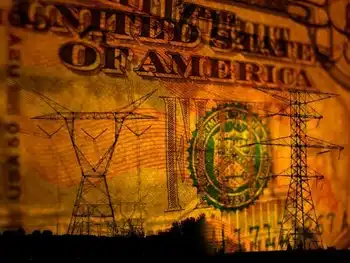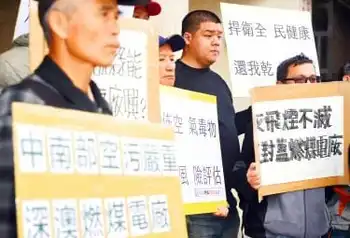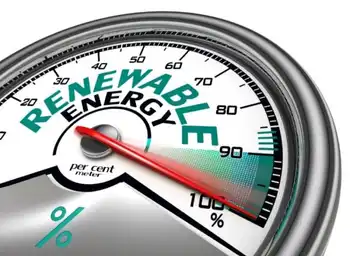Ontario: Blackout sends hydro into political spotlight
- When the lights went out in Ontario on Aug. 14, the spotlight once again blazed on the province's electricity system.
Now, the provincial Conservatives' eight-year plan to transform Ontario's electricity sector will be a prime issue in the Oct. 2 election campaign.
Prior to the blackout, Ontario's Conservatives had succeeded in pushing the hydro issue into the background, largely by freezing power prices for consumers and small businesses in November 2002.
But the sudden power failure, followed by an eight-day power emergency, layoffs of non-essential workers and appeals to citizens to sweat out the summer heat without air conditioning, have catapulted the issue back into prominence.
Once again, it's clear that the province's electricity security is balanced precariously.
Dave Goulding, who heads the Independent Electricity Market Operator (IMO), put it this way nearly a year ago, after the province had flirted with blackouts during record hot weather:
"Any time the temperature hits 30 degrees, we're going to be kept alive by our neighbours," Goulding had said.
On Aug. 14, Ontario got a dramatic demonstration of what happens when both the province and its neighbours hit the wall together.
The Conservatives turned the blackout into an exercise in political management, showcasing Premier Ernie Eves in regular briefings, burnishing his image as a take-charge leader.
But opposition politicians are likely to hammer away at the Tories' hydro strategy over the past eight years, which directed Ontario toward deregulated, open-market prices, and an increased role for the private sector.
The hope was for less government involvement, and ultimately lower prices. The results were decidedly mixed.
The Tories started off by transforming not-for-profit local utilities such as Toronto Hydro into profit-making corporations. When the utilities applied for rate increases to generate those profits, the government had to lean on the Ontario Energy Board to squelch the rate increases and head off a public firestorm.
Then last summer, Ontario opened its electricity market to competition, allowing supply and demand to set prices.
As the hottest summer on record set in, power prices soared. In November, as the summer's high hydro bills continued to roll in, Eves was forced to freeze prices for consumers and small businesses — about 50 per cent of the power market — to head off another political crisis.
But it came at a cost. The province has paid $600 million in subsidies so far to underwrite the price freeze.
In the meantime, the province had also lost an embarrassing court battle to privatize Hydro One, which owns the province's long-distance transmission wires.
Two unions argued that the province had no legal authority to sell Hydro One.
A court agreed, forcing the province into retreat once more.
As the election date neared, the Tories tried to stamp out potential hotspots by appointing special committees to look into specific issues. One is probing the $1 billion cost overrun to refurbish the Pickering A nuclear station. Others are looking at ways to get more generators built, and to curb spiralling demand growth.
All have one thing in common: They'll report after the election is over.
The blackout gives the New Democrats and leader Howard Hampton a fresh point of attack on an issue they have placed front and centre for years.
Hampton demands a return to a publicly owned, effectively regulated electricity system. The NDP platform says that, by law, Ontario should have to produce 10 per cent of its power by renewable, environmentally friendly means by 2010, and 20 per cent by 2020.
The Liberals have laid less stress on hydro leading up to the election — they were initially in favour of deregulation — but have called on Ontario to phase out all coal-burning generators in Ontario by 2007.
Related News

Washington State Ferries' Hybrid-Electric Upgrade
WASHINGTON - Washington State is embarking on an ambitious update to its ferry fleet, introducing hybrid-electric boats that represent a significant leap toward greener and more sustainable transportation. The state’s updated plans reflect a commitment to reducing carbon emissions and enhancing environmental stewardship while maintaining the efficiency and reliability of its vital ferry services.
The Washington State Ferries (WSF) system, one of the largest in the world, has long been a critical component of the state’s transportation network, linking various islands and coastal communities with the mainland. Traditionally powered by diesel engines, the ferries are responsible for significant greenhouse gas…




